Rebecca MasonFormer police detective and Morning Live expert
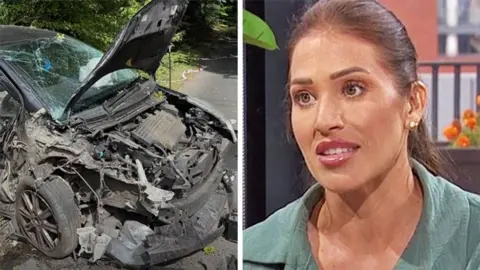 Morning Live
Morning LiveAs a former police detective for 14 years with Surrey Police, I regularly provide advice on criminal matters for BBC’s Morning Live. I have also attended many car accidents in a professional capacity, but this summer, for the first time, I was in a head-on collision with another car myself.
Being directly involved in one of the more than 900 car accidents that happen in the UK every day gave me a different perspective.
The woman in the other car, in her early seventies, had a medical episode while driving and swerved straight into my lane and hit me.
At the time, I didn’t know any of that – I just remember a huge bang and then everything felt like a blur.
The next thing I knew, two men were at the side of the car trying to get me out. I couldn’t move. I was taken to the hospital for scans but amazingly, I got away with cuts and bruises.
I was very lucky, and the witnesses at the scene were so important because without them, I wouldn’t have understood what had actually happened.
I always tell people in accidents to turn their engine off immediately but in the chaos of the scene and people telling me to get out of the car, I actually forgot to turn mine off.
As well as obvious things like exchanging contact details, here are five other things I’ve now learnt about what to do in the immediate aftermath of an accident.
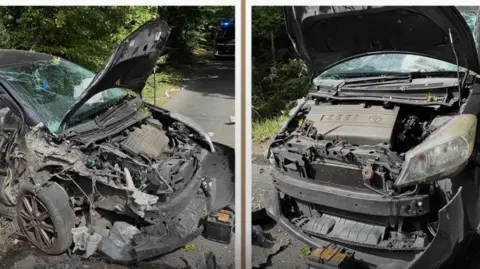 Rebecca Mason
Rebecca Mason1. Be careful what you say
Be mindful of what you say at the scene – both to the other driver and to people around you.
I didn’t speak directly to the other person involved in the car accident as they were taken straight to hospital but my natural instinct would have been to apologise, even though the accident wasn’t my fault at all.
But, it’s important to know that saying “I’m sorry” can sometimes be taken as an admission of guilt.
Motoring organisation the AA says that not apologising can protect you from liability if it wasn’t your fault.
2. Speak to witnesses
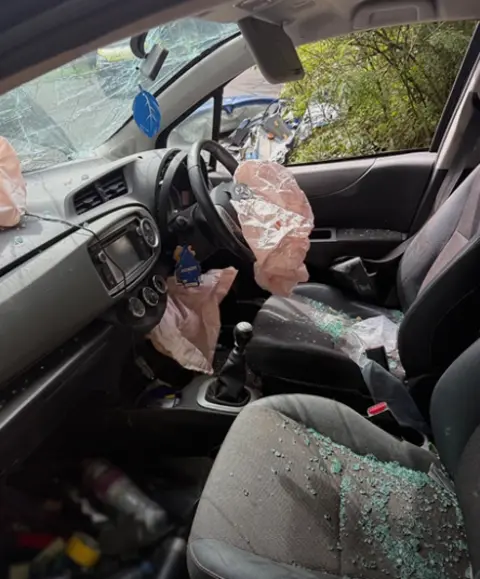 Rebecca Mason
Rebecca MasonDespite attending many car accidents in my job, I never really realised the value of speaking to witnesses.
I have no recollection of what happened in the accident nor does the other driver so witnesses were crucial.
A picture can’t always tell you what happened so speaking to someone for even a few minutes or getting their contact details to speak to them at a later date can be really helpful.
It helps you process what has happened as well as prove who the liability lies with when you speak to your insurer.
3. Take lots of pictures
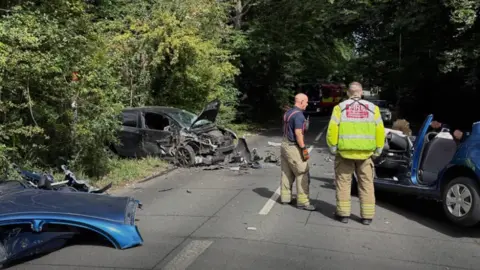 Rebecca Mason
Rebecca MasonIt’s always a good idea to record as much evidence as possible, even if it’s clearly the other party’s fault.
Capture photos of the damage and entire scene.
Stand at a distance to show the full layout, including the position of cars, road signs, weather, skid marks and surroundings.
Also look for CCTV on nearby buildings, shops, or public roads that may have captured the incident.
4. Make notes
Making as many notes as possible is helpful to remember exactly what happened.
Some of the vital details to get down are the time and date of the crash, as well as the registration, make, model and colour of all vehicles involved.
Write down any injuries you or other passengers have sustained.
Anything else you remember such as direction of travel, road name, your speed and any unusual behaviour can also be helpful.
5. Gather dashcam footage
My final piece of advice relates to dashcams, which are incredibly useful.
They provide clear, time-stamped video evidence of what happened in an accident, which can quickly resolve disputes with insurers or the police.
They can also capture dangerous driving or road conditions, helping to protect you from false claims.
Additional reporting by Yasmin Rufo

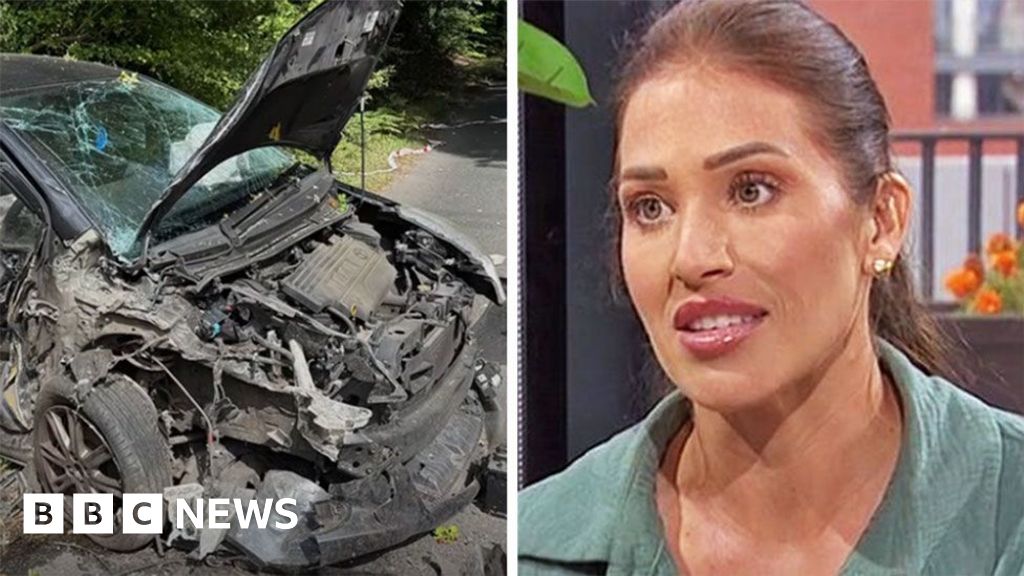

Leave a Reply